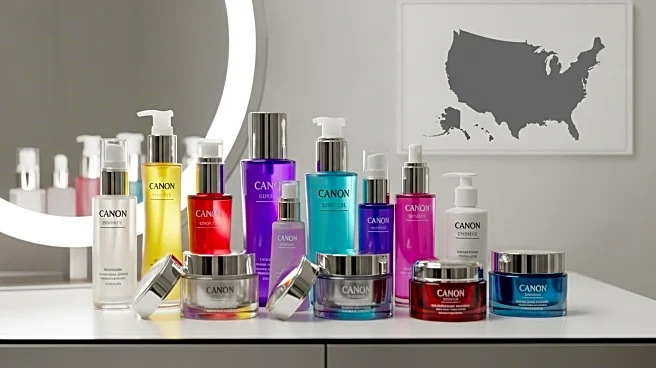What's Happening?
Korean beauty brands are making a significant push to establish a strong presence in the U.S. market, despite facing economic challenges such as rising tariffs and the end of certain import tax exemptions. Major U.S. beauty retailers like Sephora and Ulta are partnering with these brands, providing them with critical shelf space both online and in physical stores. The expansion strategy includes localization efforts, where brands tailor their marketing and product development to better resonate with American consumers. This multi-faceted approach leverages physical retail partnerships, direct-to-consumer e-commerce, and new brick-and-mortar stores from major Korean retailers.
Why It's Important?
The expansion of K-beauty brands in the U.S. is significant as it aligns with consumer desires for high-quality, affordable products amidst economic uncertainty. The trend is fueled by social media platforms like TikTok, which create organic buzz and consumer interest. The global popularity of Korean culture, including K-pop and K-dramas, further drives demand for Korean products. For U.S. retailers, embracing this trend offers an opportunity to attract new customers and position themselves as leaders in category innovation. The success of K-beauty brands highlights the importance of localization and strategic partnerships in international market expansion.
What's Next?
As K-beauty brands continue to expand in the U.S., they are likely to focus on further localization of their products and marketing strategies. This includes developing products that cater to diverse skin tones and collaborating with local creators. The trend may also lead to more collaborations between U.S. and Korean brands, creating hybrid beauty companies that blend the best of both worlds. Additionally, brands may establish local logistics and fulfillment centers in the U.S. to counter tariffs and shipping costs, ensuring a more efficient supply chain.
Beyond the Headlines
The K-beauty expansion trend reflects a broader shift towards culturally curated commerce, where international brands adapt their offerings and communication for specific local markets. This involves a deep understanding of local cultural nuances and consumer preferences, moving beyond simple distribution agreements to create bespoke experiences. The trend also highlights the power of social media in building brand awareness and consumer interest before products even hit the shelves.










